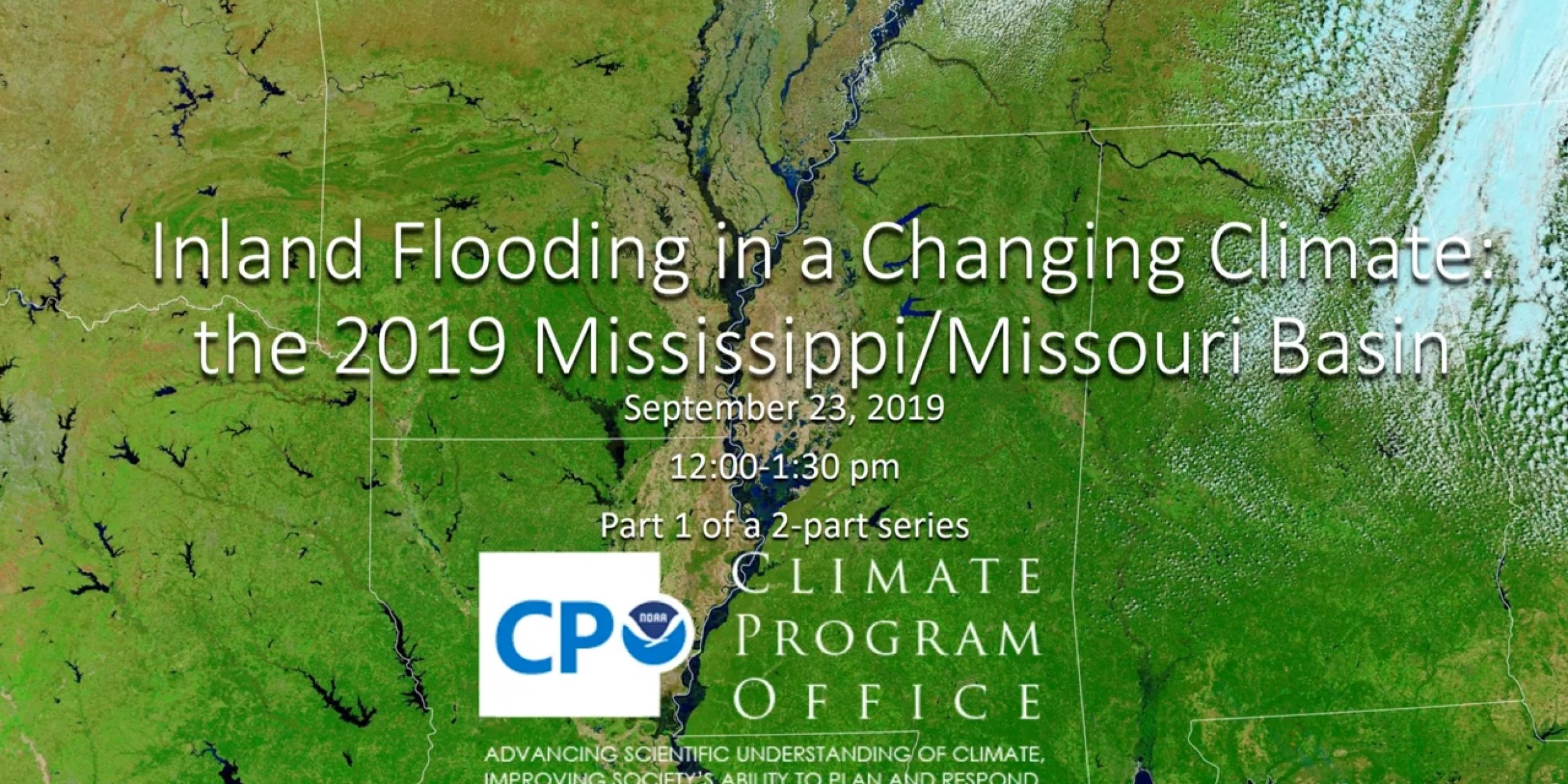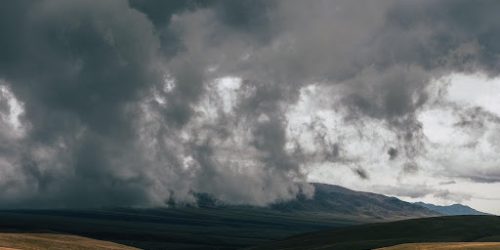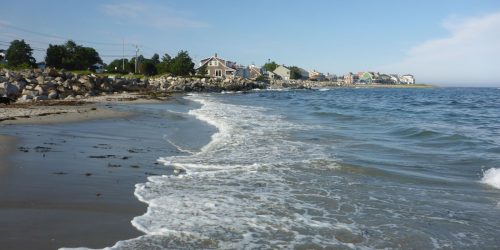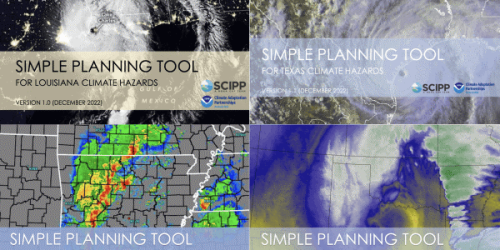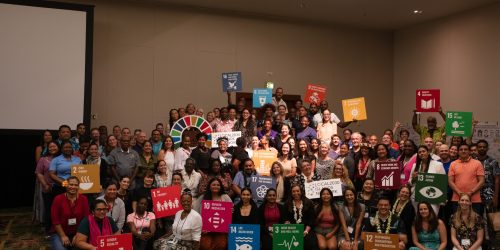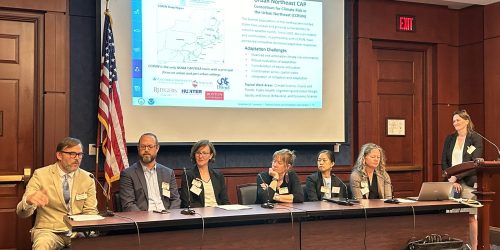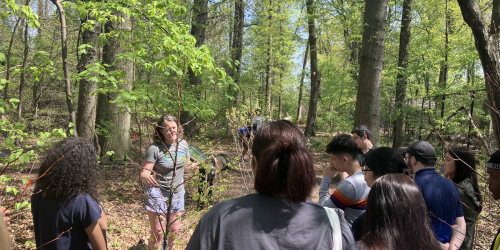Part I: exploring earth system science and modeling. view description
- Overview of the 2019 Mississippi and Missouri Basins flooding – Justin Palmer, NOAA North Central River Forecast Center Corey Loveland is Service Coordination Hydrologist at the NOAA/NWS North Central River Forecast Center (NCRFC) in the Twin Cities.
- Could America’s Wettest Winter of 2018-19 Have Been Anticipated? – Andy Hoell, NOAA Earth System Research Laboratory//Physical Sciences Division Andy Hoell is a meteorologist at the NOAA Earth System Research Laboratory/Physical Sciences Division focusing on research the physics and predictability of regional weather and climate.
- Understanding Extreme Precipitation and Characterizing Flood Risk in Climate Models – Sarah Kapnick, NOAA Geophysical Fluid Dynamics Laboratory Sarah Kapnick at NOAA/OAR Geophysical Fluid Dynamics Laboratory is Deputy Division Leader & Research Physical Scientist in the Seasonal to Decadal Variability and Predictability Division. Sarah’s research focuses on the mechanisms controlling the hydroclimate, with an emphasis on: precipitation, extreme storms and mountain snowpack.
- Observed and Projected Changes in Flood Events – Gabriele Villarini, University of Iowa Gabriele Villarini is Associate Professor in the Department of Civil and Environmental Engineering at the University of Iowa, and the Director of IIHR-Hydroscience & Engineering. His research broadly focuses on flood hydrology, extreme events, hydroclimatology, climate predictions and projections, and economic impacts of natural hazards.
- Modeling Land and Hydrologic Processes Associated with Flooding in Climate Models – Elena Sheliakova, NOAA Geophysical Fluid Dynamics Laboratory Elena Sheliakova is a Senior Climate Modeler at NOAA/OAR Geophysical Fluid Dynamics Laboratory and co-chair of the Land Model Division Team. She focuses on the representation of land, hydrologic and Earth system processes in climate models.
Part II: exploring impacts to growers, the role humans have played in modifying flood dynamics, engineering challenges, and ongoing efforts to better understand impacts of climate variability and change on these human systems. view description
- 2019 Wetness and Impacts on Midwest/Plains Agriculture – Dennis Todey, U.S. Department of Agriculture The extreme wetness of fall 2018 into 2019 severely delayed and slowed agriculture in the region leading to direct and indirect losses in yield and productivity. Final details agricultural impacts are still TBD based on final yields and what happens with fall freeze timing.
- Climatic and anthropogenic controls on Mississippi River floods: Insights from paleoflood records – Sam Munoz, Northeastern university In this talk, I’ll describe recent efforts to develop paleoflood records for Mississippi River basin based on floodplain lake sediments. Together with instrumental and reanalysis data, these records show the importance of climate variability (i.e., ENSO) in regulating Mississippi River flood hazard, and document a recent increase in flood hazard associated with human alterations to the channel and its basin.
- How to Plan for Floods? Are You Kidding? – Gerald Galloway, University of Maryland Floods are an inevitable part of life on this planet. They are one of a number of risks that are ignored because “they won’t happen here!” or “one happened here, but another won’t happen for 100 years!” Experiences in major flood prone areas of the United States should provide guidelines for dealing with floods but somehow do not. What steps can be taken to assist in reducing flood losses and improve attention to floods?
- Some notable impacts from the 2019 Missouri Basin (continuing) flood event – Doug Kluck, Regional Climate Services Director, Central Region


